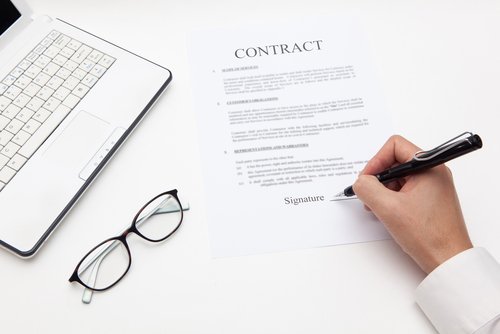Chapter 13 bankruptcy is meant to rebuild your financial life. Filing for bankruptcy not only stops creditor harassment, it forces you to decide which executory contracts and leases you might want to retain. From the lease on your apartment to an agreement on equipment for your business, they are reviewed as part of a Chapter 13 structured repayment plan. Keeping some agreements in place can be better than starting over. Discussing your options with a bankruptcy attorney is a good first step.
What is an Executory Contract?
An executory contract is an agreement that is still active. The contracting parties still have unfulfilled commitments to each other. Executory contract examples include vehicle leases, real estate leases or contracts, and rent-to-own leases for furniture or electronics. With the example of a rental lease, the property owner and the renter are part of an active contract until it expires.
Can I Continue My Car Lease?
You can assume or reject any lease within 60 days of filing for bankruptcy. If you decide to keep your car lease, you specify the assumption of the lease in your Chapter 13 plan. By assuming the lease, you are stating you will be responsible for repaying it. In some circumstances, your plan can help you cure any arrears in payments on the lease. A lease not assumed in the requisite time is deemed rejected. This means that the contract is voided, and the lessor can take their property back.
What if I No Longer Want Keep a Lease?
You can list a lease as part of the debts you wish to discharge. An unpaid balance on a rejected lease or executory contract is an unsecured liability for the debtor in the eyes of the Bankruptcy Court.
Can the Trustee Disagree with Me on Keeping a Contract or Lease?
Even if you want to continue paying a lease, a Chapter 13 Trustee may not think it is in the best interest of repaying creditors. They may think you are spreading yourself too thin. This could lead to an objection to the confirmation or approval of your Chapter 13 Plan. Having an experienced Chapter 13 Bankruptcy attorney on your side can help you navigate the differences between a reasonable and necessary lease and one that may create issues in your reorganization.
Can My Landlord Evict Me if My Lease is Active?
It depends on whether you have filed for bankruptcy. Once you file, an automatic stay will protect you by preventing your landlord from acting against you until and unless the Bankruptcy Court lifts the protection related to the leased property. If your rent is current, and you desire to stay in the leased apartment by assuming the lease, the Court will not generally lift that protection. Once your lease period runs, there is no way to force a landlord to agree to extend or sign a new lease.
Sawin & Shea – Indianapolis Bankruptcy Attorneys
Knowing which contract or lease to keep or reject often takes a seasoned professional. Turn to the Indiana bankruptcy attorneys at Sawin & Shea for helpful guidance on keeping your repayment plan on track. With years of experience representing good people in bad financial situations, we can answer all your questions. Do you need to file for Chapter 7 or Chapter 13 bankruptcy? Please do not hesitate to call us today at 317-759-1483 or send an email for a free consultation. We are ready to help.



